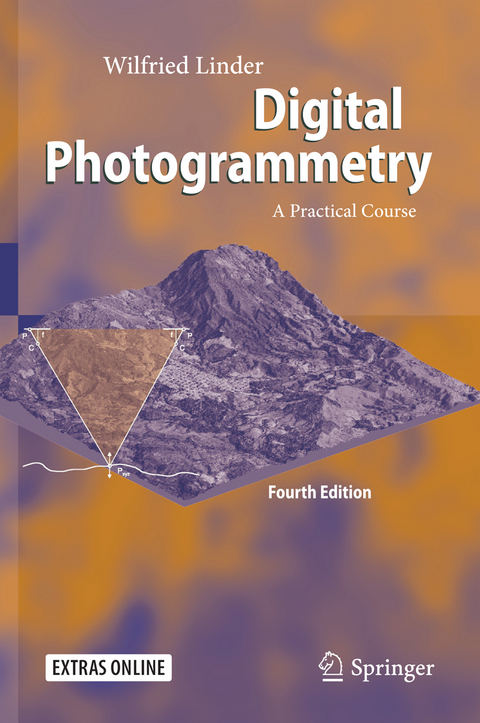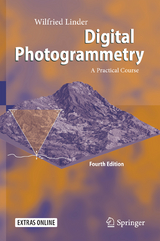Digital Photogrammetry
Springer Berlin (Verlag)
978-3-662-50462-8 (ISBN)
The fourth edition is again an "all-in-one" combination of basic theory and practical exercises with software and data available from the Springer server. Potential readers / users are students of Photogrammetry, Geodesy, Geography and other sciences, but also all who are interested in this topic. No prior knowledge is necessary, except the handling of standard PCs. Theory is presented true to the motto "as little as possible, but as much as necessary".
The main part of the book contains several tutorials. In increasing complexity, accompanied by texts explaining further theory, the reader can proceed step by step through the particular working parts. All intermediate as well as the final results are discussed with reference to accuracy and error handling, and included in the data sets to provide controls. Most of the standard work in Digital Photogrammetry is shown and trained, for example scanning, image orientation, stereo plotting, aerial triangulation measurement (manual and automatic), block adjustment, automatic creation of surface models via image matching, creation of ortho images and mosaics, and others. Examples of both aerial and close-range photogrammetry present the power of this kind of measurement techniques. 3-D images can be viewed with the accompanying 3-D glasses.
During the time since the last edition, the software development went on, and therefore it was necessary to adopt the text to the actual program versions which were also tested to work properly under MS Windows 10. Few options which are obsolete nowadays were removed, some new options were added, the handling of the software was simplified in several places, and so on. For the use of own images taken with a custom digital camera, a new chapter offers an easy way of lens calibration and explains how to get good results with a minimum of work.
The software is not limited to the example data included but may be used for personal projects. Part ofthe book comprises a complete description of the software.
Wilfried Linder, born in 1959, studied mathematics and geography at the University of Hannover (1979-85). Thereafter, he was employed as a scientific assistant at the Universities of Osnabrück/Vechta, Hannover and Düsseldorf. In 1990 he received his Ph.D in geography, followed in 1993 by one in geodesy. He is now private lecturer at the University of Düsseldorf, Institute for Informatics.
Introduction.- Included software and data.- Scanning of photos.- A single model.- Aerial triangulation.- A soil erosion experiment.-wave measurements.- Lens distortion and calibration.- Two final examples.- Programme description.- Appendix.- List of figures and formulas.
| Erscheinungsdatum | 23.07.2016 |
|---|---|
| Zusatzinfo | XXIII, 209 p. 76 illus. With 3-D glasses. With online files/update. |
| Verlagsort | Berlin |
| Sprache | englisch |
| Maße | 155 x 235 mm |
| Gewicht | 490 g |
| Themenwelt | Naturwissenschaften ► Geowissenschaften ► Geografie / Kartografie |
| Schlagworte | aerial triangulation measurement • Earth and Environmental Science • Geoinformation • Geophysics/Geodesy • Information Systems and Communication Service • Landscape/Regional and Urban Planning • Photogrammetry tutorial • Photo Measurements for Landscape Planning • Remote Sensing and photogrammetry • Remote Sensing/Photogrammetry |
| ISBN-10 | 3-662-50462-6 / 3662504626 |
| ISBN-13 | 978-3-662-50462-8 / 9783662504628 |
| Zustand | Neuware |
| Informationen gemäß Produktsicherheitsverordnung (GPSR) | |
| Haben Sie eine Frage zum Produkt? |
aus dem Bereich




